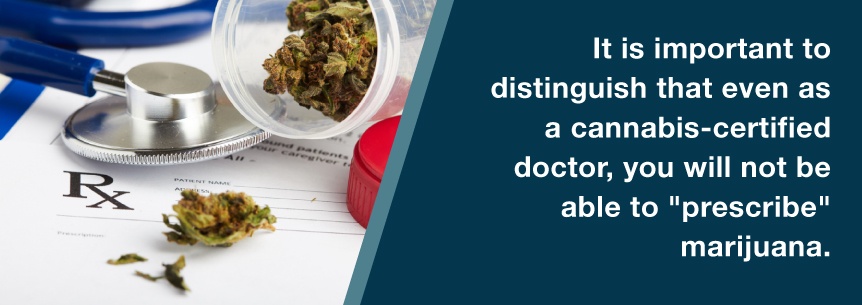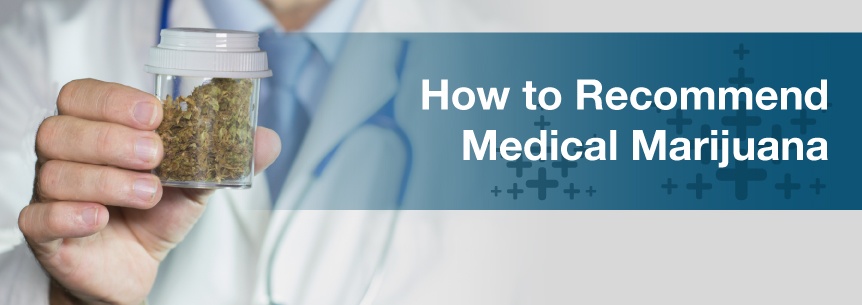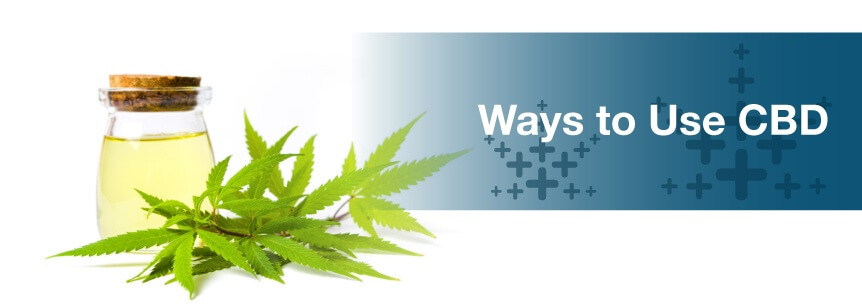With medical marijuana only beginning to establish its place in the medical field, there are few useful resources for doctors on how to recommend cannabis to patients. You may recognize the health benefits medical marijuana can have for your patients, but are unsure of how to become a marijuana-certified doctor. Or maybe you have heard about medical marijuana as a treatment option, but are still curious if cannabis could be a good fit for your patients. Recommending medical marijuana to patients can be confusing, but MarijuanaDoctors.com is here to help.
What Ailments Can Medical Marijuana Treat?
Medical cannabis has been shown to provide benefits in many different areas of medicine, ranging from oncology and neurology to pain management and mental health treatment. Here are some significant areas of medicine in which medical marijuana can provide health benefits for patients.
- Pain treatment: Its ability to reduce chronic pain is perhaps one of the best-known qualities of medical marijuana. True to its reputation, medicinal weed can greatly reduce a patient’s pain, from severe chronic pain to headaches.
- Muscle and joint diseases: Because of its relaxing and anti-inflammatory qualities, pot can greatly relieve the symptoms of many muscle- and joint-related ailments, such as muscular dystrophy, fibromyalgia and arthritis.
- Cancer: Millions of people across the U.S. suffer from one of the more than 100 different types of cancer. Cancer is a disease in the cells of a person’s body, and most types of cancer are fatal when left untreated. Many traditional treatments for cancer, such as chemotherapy or radiation, cause severe side effects for patients. Medical marijuana can be an effective treatment option for those hoping to manage the pain and symptoms of cancer and cancer treatment. To learn more about how cannabis can help with a specific type of cancer, read our Marijuana and Cancer
- Mental health and body image disorders: Mental health issues are a rapidly growing problem in America, as people experience more and more pressure to perform at high levels in the workplace and other areas of life. American culture also promotes unrealistic body image standards that can be damaging to a person’s self-esteem. Medical marijuana can help manage a variety of mental health and body image disorders, including anxiety, panic disorder, depression, anorexia and bulimia.

Below are just a few of the primary conditions treatable with medical marijuana:
- Arthritis
- Most forms of cancer
- Chronic pain
- Crohn’s disease
- Diabetes
- Epilepsy
- Fibromyalgia
- Glaucoma
- HIV/AIDS
- Multiple sclerosis
Before diving into the certification process, be sure to check which ailments qualify for medical marijuana treatment in your state. Not every state recognizes the benefits of marijuana treatment for all the conditions listed above. For more information about medical marijuana requirements by state, check out our state-specific resources.
How Do I Get Started?
It is important to distinguish that even as a cannabis-certified doctor, you will not be able to “prescribe” marijuana. Medical marijuana is not available at pharmacies, so your patients will not be able to “fill prescriptions” for medicinal cannabis. Instead, you will issue “recommendations” for medical marijuana. These official certifications of recommendation allow patients to pick up their medical marijuana at a local dispensary.

If you are considering recommending medical marijuana to your patients, you should begin by educating yourself on the benefits and risks of medical marijuana. Below are a few good resources to get you started with a basic knowledge of marijuana.
- NORML’s overview of marijuana
- Medical Jane’s introduction to medical marijuana
- Our fact-packed “Guide to Cannabinoids”
- Or more medical marijuana research highlights
Do I Need to Get a Certification to Recommend Medical Marijuana?
In many states, doctors are not required to obtain any additional certifications to recommend medical marijuana, as long as they hold a valid license to practice medicine. Other states only permit medical marijuana recommendations from specific types of medical professionals, often neurologists.
Some states have tighter regulations for recommending weed to patients, including completing education courses or joining a registry. Our partner Americans for Safe Access provides an easy-to-use resource for verifying the requirements for recommending medical marijuana in your state.
How Do I Find Patients?
One of the greatest benefits of becoming a marijuana-friendly doctor is increasing your patient base. Not many doctors provide cannabis recommendations, but there are thousands of patients seeking the all-natural treatment medical marijuana provides. Patients in search of an alternative remedy will be knocking on your door and will be willing to switch providers to work with a cannabis-certified doctor.
Even patients who are still on the fence about the benefits of medicinal weed will appreciate the choice you offer and the opportunity to learn more about medical marijuana from a certified professional.
MarijuanaDoctors.com can also help connect you with eligible patients through our Find a Doctor resource. When you become a member of our site, you will be listed in our directory so patients seeking marijuana-certified doctors can easily locate your practice. Patients who get referred to your practice will already be pre-qualified in your state for medical marijuana use, making your job one step simpler.
How Do I Know If My Patients Are Eligible for Medicinal Weed?
Although medical marijuana has the potential to treat a multitude of ailments and conditions, not all of them are eligible for legal medical marijuana treatment in every state. Determining if your patients are eligible for medicinal weed is an essential part of becoming a trustworthy medical marijuana doctor. Once you are familiar with the specific medical marijuana laws in your state, you can follow these basic steps to recommend marijuana to your qualifying patients.


This work is licensed under a Creative Commons Attribution-NoDerivs 3.0 United States License. If you like our infographic, feel free to share it on your site as long as you include a link back to this post to credit Marijuana Doctors as the original creator of the graphic.
- Identify the best patients for marijuana treatment: Now that you are a marijuana-certified doctor, your patients will likely begin asking if cannabis is the right treatment option for them. Because you have educated yourself on the benefits of marijuana treatment, you are ready to pass that knowledge on to them. Talk to interested patients about the benefits and risks of medical marijuana use to see if cannabis treatment options are a good choice for them.
- Verify the patient has a qualifying condition: After a patient expresses interest in medical marijuana, verify their ailment or condition qualifies under your state laws. It is especially important with new patients to verify the status and nature of their existing medical condition, because you may not have been the doctor who provided the initial diagnosis. In most cases, a patient evaluation will take place face-to-face, but some states permit medical professionals to complete evaluations online through a video consultation.
- Agree medical marijuana is the best treatment option: At this point, it is time to share with the patient any information about dosage, ingestion and any possible side effects that may occur. Provide time for the patient to ask questions, and make sure you both agree medical marijuana is a good fit.
- Discuss a treatment plan: Before sending a patient away with a recommendation form, be sure to spend a few minutes outlining a treatment schedule. Agree on a timeline for follow-up appointments and remind your patient to keep track of the progress of their condition.
- Complete a certification or recommendation form: Rather than filling out a prescription, doctors recommending medical marijuana will complete a form certifying they have evaluated the patient and asserting the patient qualifies for medical marijuana under their state’s laws. Because medical marijuana is federally a Schedule 1 drug, it is not legal to issue an actual prescription.
- Issue a medical marijuana card: Some states require patients to complete a registration online before receiving their medical marijuana card. In other states, doctor’s offices can provide the card to patients the same day they complete their recommendation form. Check your state’s specific requirements so you can inform your patients where and how to obtain their card.
- The patient will pick up medication at a dispensary: With their recommendation form, medical card and valid ID in hand, your patient will head to a dispensary to pick up their medical cannabis dosage.
- Perform follow-up care: Schedule regular follow-up appointments to check in with your patient and monitor their medical cannabis use. Because researchers are still studying the effects of medical marijuana, it is beneficial for you and for the broader medical community to keep diligent notes of each medical marijuana patient’s progress and improvement.

While weed can be extremely beneficial to some patients, there are others for whom medical marijuana will not be the right option. It is important to take into account each patient’s health history when recommending marijuana as a medicine. Here are some questions doctors should ask each time they consider recommending marijuana to a new patient:
- Have you misused marijuana or other drugs in the past? A history of drug abuse could make a patient more likely to consume more than the recommended amount of medical marijuana.
- Have you struggled with drug addiction/dependence in the past? While marijuana is not physically addictive, a patient at high risk of addictive behaviors may become dependent upon marijuana at a higher usage rate or for a longer time than it is recommended to them.
- Are you aware of the potential side effects/risks? As with any medicine or treatment, it is important to make sure the patient knows any possible risks of medical marijuana use. That helps the patient make a more informed decision and will ensure you are not liable if the patient experiences side effects.
- Do you know you need to make follow-up appointments to re-evaluate your eligibility for medical marijuana? Monitoring a patient’s progress is important to maintaining an appropriate treatment plan for each patient.
How Do I Give the Best Medical Marijuana Recommendations?
Prescribing medical marijuana to your patients begins with your knowledge of cannabis. Just as with any other medicine, medicinal marijuana comes in different forms and doses to suit each patient’s individual needs. Understanding the various strains of weed and forms of ingestion are important for giving the best medical marijuana recommendations for your patients.
There are three primary types of marijuana you should be familiar with:
- Indica is a CBD-heavy strain that is great for relaxation. Indica produces a “body high,” and is the most common type of marijuana prescribed to medical patients due to its effectiveness for pain management.
- Sativa is a THC-heavy strain that is uplifting and energizing. It results in a “head high” and can make patients feel more creative or awake. Sativa strains are excellent for mood disorders, such as depression or anxiety.
- Hybrids are a combination of Indica and Sativa strains created through breeding. Hybrids can exhibit qualities of both types of weed, and can work well for patients looking to treat multiple symptoms or ailments.
Some potential medical marijuana patients may dislike the idea of inhaling a medicine. Luckily, there are many other ways for patients to ingest medical cannabis instead of smoking a dried form of the herb. Some states do not even allow distribution of medical-grade cannabis in a smokeable form. Here are some other main forms medical marijuana may be available in:
- Pills
- Oils
- Topical forms
- Tinctures
- Liquids
- Vapors
Ensuring patients take the proper doses of cannabis is an important part of recommending medical marijuana. Many people who are wary of medical marijuana treatment are concerned about the impairment that comes with getting “high.” However, as the medical marijuana industry continues to grow, doctors and dispensaries have the tools to recommend the correct dose a patient needs to treat their ailment without causing impairment. It is still important to talk to your patient about their experiences and adjust dosages if necessary, as you would with any other medication.
How Do I Know Medical Marijuana Is Working for My Patients?
As a doctor who cares, you want to be sure the medical cannabis you prescribe is improving your patient’s health. The best way to do that is to schedule regular follow-ups and encourage patients to share their experiences. Our symptom tracker allows patients to report the progress of their condition and the improvement of their symptoms directly to you. Using this resource also benefits the medical community, as it provides valuable research on the before-and-after effects of medical marijuana use.
What Are the Benefits of Recommending Medical Marijuana?
Aside from the direct medical benefits for your patients, recommending medical marijuana can help you and your business. Because there are not many doctors prescribing medical marijuana, you set yourself and your practice apart by becoming marijuana-certified. That will naturally draw patients who are interested in the benefits cannabis can have on their lives and health.

Other benefits of recommending medical marijuana include the following.
- Support from the growing pro-marijuana population: More and more people are standing in support of legalizing medical marijuana. Like you, these people recognize the potential for medical cannabis to treat and relieve many ailments. Offering medicinal pot will impress these patients and help build stronger patient-doctor relationships so they continue coming to you for service.
- More revenue for your practice: Because of the loyal client base you will build, you will be able to generate more revenue. Many marijuana clinics are cash-only, meaning your patients will be paying at the time of the appointment, so you won’t have to wait to see the revenue from the services you perform.
- Less dealing with insurance companies: Patients understand medical marijuana is an out-of-pocket expense in all states in which it is currently legal. For patients, this means they know exactly where their money is going when they pay for medical marijuana treatment. For you, it means spending less time on paperwork for insurance companies and more time helping patients.
How Can I Be Sure I Am Following the Law?
The legalities surrounding medical marijuana can be intimidating to physicians hoping to begin prescribing cannabis to their patients. However, the benefits of access to medical marijuana are worth navigating the legal questions to become a medical marijuana-certified doctor. Here is a brief breakdown of the laws regarding recommending medical marijuana.
- Federal law: S. federal law classifies marijuana as a Schedule 1 drug, assuming it is addictive and has no medical use. However, this classification does not prevent states from establishing separate laws regarding marijuana use.
- State law: More than half of U.S. states have currently legalized marijuana in some form. States may legalize pot for medical use only, or for both medical and recreational use. Other states have decriminalized marijuana, meaning there are reduced penalties for possession or use of marijuana, but it still is not legal. If your state has legalized marijuana for medical purposes, you can recommend medicinal weed to your patients.
- Requirements for doctors: While not technically part of the law, many states have requirements for doctors who are recommending pot to their patients. These requirements vary, but typically include keeping accurate and complete medical records for patients on file, making sure their patients are not obtaining multiple recommendations from other doctors and maintaining a legitimate ongoing relationship with their patients who use medical marijuana.
MarijuanaDoctors.com can also help you navigate any legal questions you may have through our state-by-state legal resources and by sending updates to your inbox if your state’s legislation or the qualifying conditions in your state change. That means you can stay up to date with any new laws just by checking your Doctor Dashboard.
Recommending Medical Marijuana Made Easy
Joining MarijuanaDoctors.com connects you to thousands of potential patients seeking medical marijuana recommendations in your state. Our online resources make your job easy by sending referrals of pre-approved patients directly to your inbox. You can even book appointments and monitor patients’ symptoms through our online portal and symptom tracker.
MarijuanaDoctors.com has all the resources you need to start recommending medical marijuana to your patients. Register today to get started! Still have questions about how to prescribe medical marijuana? Give us a call at 800-909-4505.






